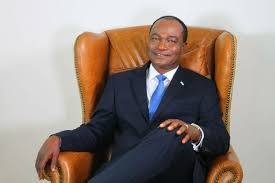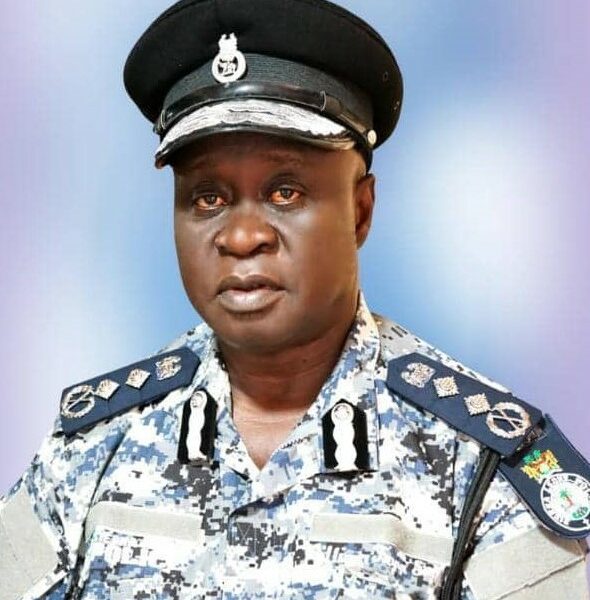No justice for the youth in Sierra Leone
“In today’s Independent magazine: a shocking article on the child inmates at Pademba Road prison,” a text message from Ade Daramy read. I had just woken up, switched on my mobile phone when this message came through. (Photo: Unisa Dizo Conteh, President Young Leaders – Sierra Leone)
Ade, a very good friend of mine, always forwards numerous articles by email, often fascinating ones on Sierra Leone and Africa. Like the one published on the BBC, “New business hope for Sierra Leone’s war children” by Jon Cronin. I enjoyed reading that one. It was about the entrepreneurial determination of the youth to drive Sierra Leone’s development.
But the article on the Independent, one of UK’s leading newspapers, “A Boy named Abdul,” written by John Carlin, 5 March 2011, was disheartening to read. My six-year-old boy noticed my frowned face while reading this article. He came closer to me, wrapped his hand round my shoulder. “Who’s that?” he asked keenly, pointing at the very sad faces of the inmates featured in the piece. “They are children at a prison,” I replied.” I asked him what he made of it. “This is bad,” he replied, without any hesitation.
Indeed, my son’s verdict is as good as mine. My heart was pounding rapidly, my eyes settled with tears, which I fought hard to suppress. I felt like shouting very loud – in a way that the strength of my voice would destroy the unrepentant walls of Pademba Road prison and set free all the innocent young people locked up in there.
According to John’s report children, below 18 years, were being jailed in an adult prison in Sierra Leone. Steven, a 17-year-old, had been sentenced for 3 years for stealing two sheep. He died last year after reportedly suffering malnutrition and illness. He died “like a stray dog,” a nurse described.
Another, boy, 15, also got three years for breaking a car glass.
There are allegedly more serious crimes that are not yet been investigated and the perpetrators brought to justice. Such as the illegal selling of Sierra Leonean passports to foreign nationals. Such as the police who take bribes and pervert the course of justice. Such as officials in public positions who embezzle state funds, yet thrive from doing that. Additionally, people in public positions who take bribe before they can do their jobs. Are these crimes not much serious than stealing two sheep?
Most of the children serving jail sentences, according to the report, have lost their parents during the war. Some have no responsible adult looking after them or their parents are just too poor. They are the abandoned people of our society.
An unknown lawyer featured in the report said “If you don’t have money, you can’t get justice in Sierra Leone.”
Youth Injustice
John’s report, although did not provide a thorough insight into child inmates in prisons across the country (he only spent a few weeks in the country), however, his story mirrors the social exclusion our young people face in Sierra Leone.
Approximately 75% of young people (between 18-35 years) are unemployed.
Reports found that thousands of young people are employed in mining, but they work in deplorable conditions and their take-home salary is incredibly low.
Even though Sierra Leone officially has free education, for the children, especially the poor, it is inaccessible because their parents are unable to buy text books and other materials for school.
Last year education spending was 8% of the national budget, while 40% was spent on governance.
In December 2010, the government banned musical activities due to trouble caused by a tiny minority – resulting to loss of earnings for many young musicians for whom December is a month that offers the opportunity for great rewards for their labour.
About two weeks ago 30 school pupils were sent in prison for up to nine months – they had been in possession of knives, scissors, compasses and forks, according to a reporter.
Of the US$20 million the World Bank committed for youth employment, much of the money is being spent on short-term job creation while a small amount is spent on skills training. Should it not be the other way round? So that more is spent on skills training which will provide a long-term benefit for the youth?
What can be done?
Significant investment should be directed toward preventing youth crime and providing resources that will make the lives of the youth meaningful. No one was born a criminal. Of course as a society we should be concerned about punishing those who commit offences. But, we should equally be concerned about the motivation for a child to commit an offence in the first place.
Every Sierra Leonean child has rights, regardless of their social or economic background. It is the responsibility of the government to ensure the rights of children are protected. Our courts must ensure that punishment is proportionate to the nature of the crime, taking mitigating circumstances into consideration before giving children custodian sentences.
The fight against corruption must be intensified and preventive measures must be put in place to make it very hard for someone to steal or misuse public money. Stealing public money causes a reduction in our country’s resources, which deprives the development of our youth as education and spending in areas that would benefit them are dangerously hampered.
In recent years politicians have added in their policy statements that they care for the youth. But they have largely failed to do much to address the problems that the youth face. Perhaps in the coming general elections the youth should sign a legally binding contract with politicians so that they can be held accountable if they fail to deliver on a promise.
Probably, most of our young people in prison in Sierra Leone are wrongly convicted and they pose no threat to our society. Please do not rob our country’s future by unfairly punishing, neglecting and frustrating Sierra Leone’s children.
By Unisa Dizo-Conteh
About the author: Unisa Dizo-Conteh is the president of Young Leaders-Sierra Leone (www.ylsl.org), an organisation that provides a platform for young Sierra Leonean professionals at home and in the Diaspora to participate in nation building through dialogue, education, advocacy, networking, and development.
Stay with Sierra Express Media, for your trusted place in news!
© 2011, https:. All rights reserved.






